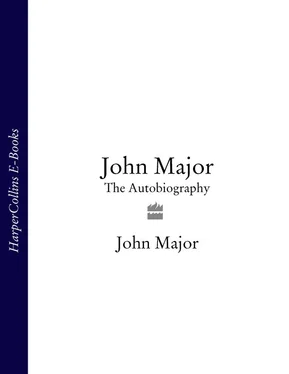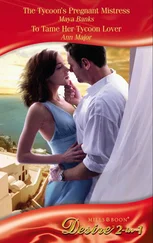I know little about my family’s time across the Atlantic. No photographs or records survive. If they wrote or received letters, they are lost. But Abraham apparently prospered, and my father had a happy and comfortable American upbringing. Perhaps something of his classless, independent background was to rub off on me.
My father often spoke of living in Fall Hollow, in the foothills of the Allegheny Mountains in Pennsylvania. He used to tell me he had found Indian arrowheads in the woods behind his house. I could find no place named ‘Fall Hollow’. Panic. Was his – and my – story true? Terry, with the aid of the Pittsburgh Post Gazette came to the rescue. Fall Hollow, near Braddock, did once exist, just as my father said.
I would know more if I still had the dented travelling trunk in which he kept old documents and cuttings about his time in America and his work as a trapeze artist. The trunk ended up in a dusty alcove in the cellar at 80 Burton Road, Brixton, my parents’ last home, and was left there when my sister Pat and her husband Peter moved out. I remember investigating it as a child. I saw the oversize evening suit and top hat my father wore in his publicity postcards, photographs (including one of him wearing his trapeze costume), and scores for a music-hall band.
The new owners of the bungalow in Worcester Park, Surrey, where I lived as a boy, found a number of remarkable items from my father’s life in their loft: a make-up box, a clown suit, shoes, wigs and scores of sheets of old music-hall songs, many signed by the composers. It was the residue of a music-hall life on the move.
My father began his career as a performer in America. He used to say that as a child he joined a local fife-and-drum band in Pennsylvania, became skilled at twirling a baton, and twice performed as a young drum major in front of President Grover Cleveland. I cannot prove this, but I do remember my mother swinging a baton of her own on our lawn at home (to the astonishment of our neighbours – it was not the sort of thing one did in Worcester Park) and telling me Father had taught her, so there is some circumstantial support for the story.
Soon my father was performing in the circus ring. He taught himself acrobatics in the cellar of his father’s building workshop, and by the age of eight, he claimed, he was the top man in a four-man pyramid. As a teenager, he said, he performed on the flying trapeze without a safety net – to attract a larger crowd and earn a bigger fee.
I can’t be certain exactly when or why my grandparents returned to England but by 1896, when Tom was seventeen, he and Alfred and their father were back in the West Midlands. The two young men were active members of the Walsall Swimming Club, and in the late 1890s their names appear repeatedly in local newspaper reports of swimming galas, taking part in an odd array of events, from canoe races in comic costume and aquatic ‘Derbys’ (with the swimmer as a horse carrying a ‘jockey’), to life-saving exhibitions, swimming races in fancy dress (Tom winning a prize as a ‘new woman’ in bloomers) and water-polo matches.
By the turn of the century, press mentions of my father cease. He may have moved away from Walsall; certainly less-newsworthy things now occupied his time. One of them became a family secret, unmentioned, something which again I did not discover until I was researching this book. As well as an adopted uncle, I had another brother.
In July 1901 a young dancer, Mary Moss, married to a musician named James Moss, gave birth to a son in Wigan. They called him Tom and registered his birth on 25 July, but the details they gave were untrue: the baby’s father was not James Moss but my father, Tom – then a twenty-two-year-old bachelor. James Moss brought the boy up as his own; indeed he may never have known he was not the father. But Tom Major did not lose touch with his son, and the child – my half-brother – was to enter my life many years later in Brixton, in circumstances no one could have imagined.
It is not hard to guess how my father met Mary and James Moss, for he was now a professional stage performer. The first of his variety shows that I can trace was ‘The Encore’, put on at the Grand Theatre, Stockton-on-Tees, in August 1902. Tom Major appeared on the bill as part of a double act, ‘Drum and Major’, with his future wife, Kitty.
Five years my father’s senior, Kitty was already married to a masseur, David Grant, when they met. The appeal of a life with a masseur must have worn off, for she soon formed a permanent professional partnership with my father which took her away from her husband, and she married Tom after Grant’s death, in 1910.
Kitty and Tom – ‘Drum and Major’ – were in regular work. September 1902 saw them on stage in Portsmouth; December took them to Hastings; and in the first half of 1903 they appeared in turn at Camberwell, Birmingham, Middlesbrough, Bolton, Manchester, Birkenhead, Plymouth, Stockton and Wolverhampton. Only political party leaders perform in a more bewildering succession of venues.
It was a peripatetic existence, but they must have loved travelling because they did not stay long in Britain. In July 1903 the pair sailed from Southampton, and did not return for almost a year. An advertisement in the Stage announced that they were ‘Touring in South America’; which was brave of them, since neither spoke Spanish. While they were there, I learned from my father, they spent time on a cattle ranch in Argentina. He used to tell me tales of the gauchos and their way of life. He also claimed that in Buenos Aires he had worked in a millionaires’ club, looking out for card-sharpers and winning back their gains. As an old man he was still an avid card-player.
And he crossed the River Plate – at least according to family legend – stumbling into a civil war in Uruguay, and was forced to enlist briefly in a local militia. Perhaps the name ‘Major’ confused someone. Tom used to recount how he had a white band pinned to his arm and had been ordered to march a group of undesirables out of town. He claimed that the white band denoted his status as an officer, but in fact, as my brother has subsequently discovered, at the time of his visit Uruguay was hotly divided between two political clans, the Blancos and the Colorados – the Whites and the Reds. Even a small piece of clothing of either colour committed you to one side or the other. Probably inadvertently, my father had joined the rebellious Blancos in their failed challenge to the Colorado party.
Their revolutionary phase behind them, Tom and Kitty returned to England in April 1904 to a thriving career. A fortnight after docking they were on stage in Blackpool, and they toured the country continually until the outbreak of war in 1914. They must have appeared in almost every big theatre in Britain, but life was not easy for music-hall performers. Contracts were cancelled without notice; shows were moved from theatre to theatre without compensation; and some theatres demanded that artistes play daily matinees but take payment only for evening shows. Individually, most performers were at the mercy of management. Collectively they believed they could protect themselves, and decided to do so.
A conference was called of leading stage figures, which Tom and Kitty attended, and on 18 February 1906 the Variety Artistes Federation was formed at the Vaudeville Club in London. Everyone present joined that same evening, and queued to pay the subscription of two shillings and sixpence. Tom and Kitty were Founder Members Numbers 97 and 98; my sister Pat still has our father’s white-and-green membership badge. I cannot recall, however, mentioning to the Huntingdonshire Conservative selection committee that my father was a pioneer trade unionist.
By 1914 Tom and Kitty were running a successful touring company. Tom had developed a heart condition which disqualified him from active service in the First World War, but they continued to appear on stage, their entertainments doubling as recruiting drives. My family still has an autograph book in which Tom collected the signatures of soldiers in the audience who had been decorated for their valour.
Читать дальше












